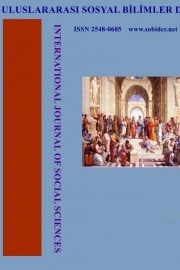
Kitap İncelemesi: Ticaret Kanunnâmesi ve Mecelle Işığında Osmanlı Ticaret Hukuku
The review of: M. Macit KENANOĞLU, „Ticaret Kanunnâmesi ve Mecelle Işığında Osmanlı Ticaret Hukuku“, Lotus, Ankara 2005, 243 sayfa.
More...We kindly inform you that, as long as the subject affiliation of our 300.000+ articles is in progress, you might get unsufficient or no results on your third level or second level search. In this case, please broaden your search criteria.

The review of: M. Macit KENANOĞLU, „Ticaret Kanunnâmesi ve Mecelle Işığında Osmanlı Ticaret Hukuku“, Lotus, Ankara 2005, 243 sayfa.
More...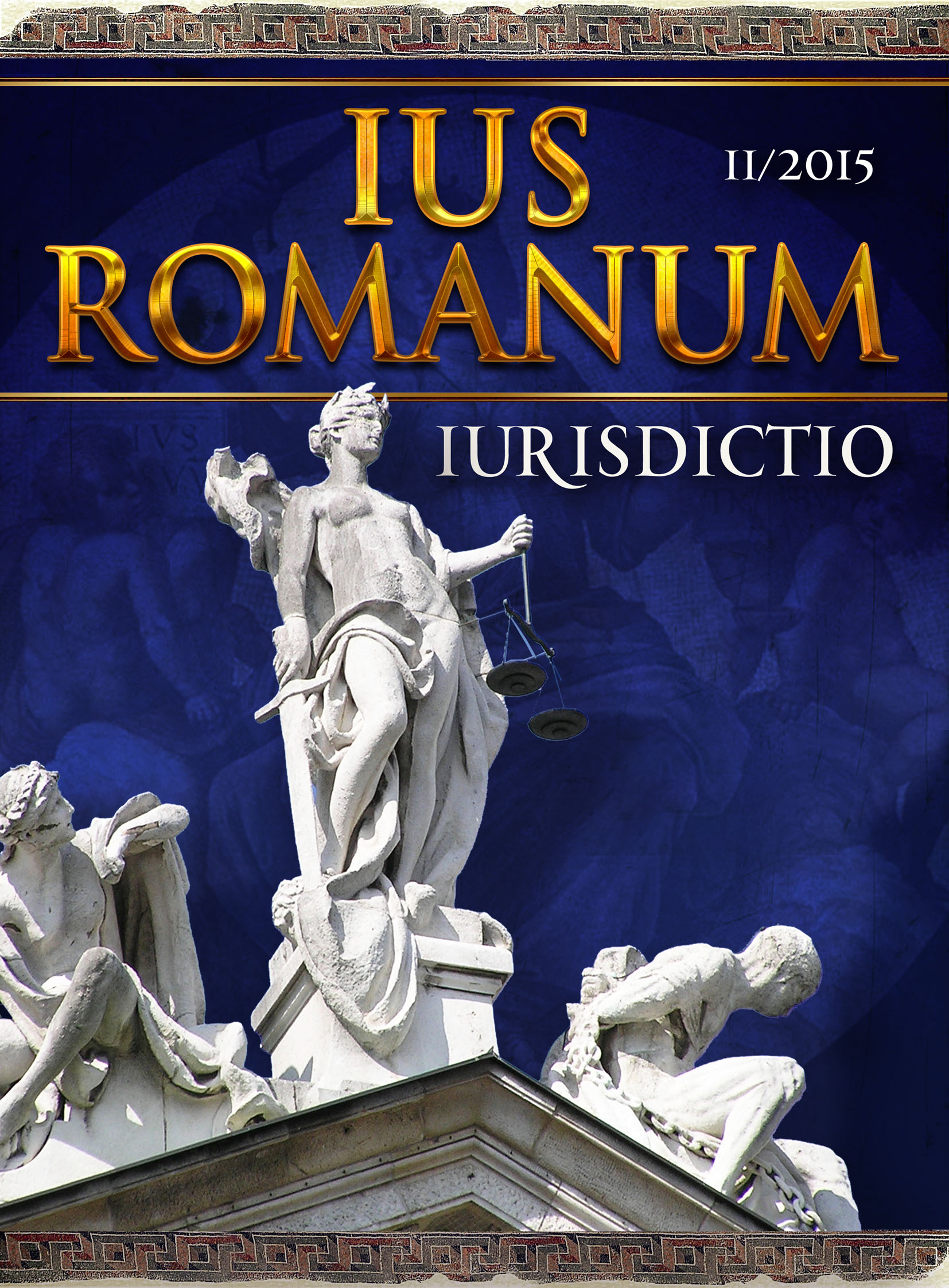
Changed circumstances between conclusion of a contract and the time foreseen for performance may render performance much more burdensome for the debtor. The approaches in Civil law and in Common law differ fundamentally as to whether the debtor may be relieved from his obligation to perform or, as it is the case for general principles of contract law, as to a right to renegotiate the contract. In Civil law, the question of changed circumstances and their impact on a promise has crystalized around the doctrine of clausula rebus sic stantibus, which was initially understood as an implied precondition. In Common law, hardship would have no impact on the duty to perform, unless it amounts to frustration of contract. This article presents the historical roots of both approaches and shows the fundamental differences between them.
More...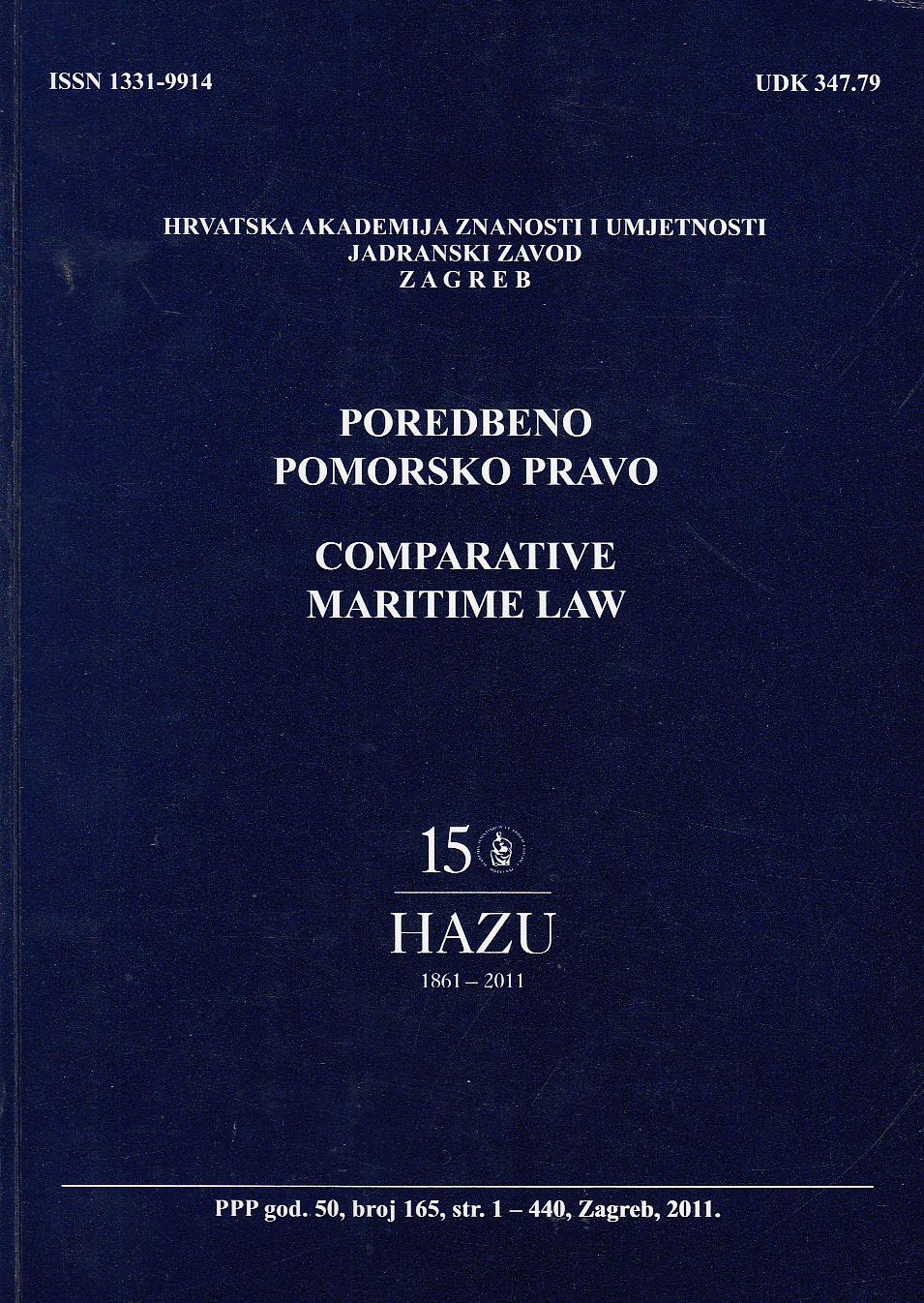
The Paper examines the insurance and liability issues resulting from the use of armed guards on board vessels. The study begins with an overview of the available data on key economic figures representing the projected overall annual costs of modern piracy. The focus is then shifted to the issue of public versus private security, where possible dangers of private-based security options are discussed in general. After explaining why the Somalia region deserves a closer attention when compared to other pirate-infested waters, a brief summary of the international effort to combat piracy threat is presented, followed by a structured overview of the use of private maritime security options in the maritime sector in general. One security option is the use of armed guards on board vessels. This option is explored both from the political (the acceptance by stakeholders) and legal standpoint (legal issues arising from the use of armed guards). An important remedy for the shipping companies/operators threatened by the piracy hazard is the existence of affordable and effective (specialized) marine insurance. A study of available piracy insurance policies is presented, followed by an analysis of case law and other legal issues arising from piracy attacks, which could prove important when considering the legal implications of armed guards employment. Finally, a simplified economic analysis of available security options is presented, followed by the final assessment of benefits derived from the use of armed guards.
More...
The European Union has settled facilitating transactions within a single market as a primary aim. Consumers’ rights and protecting their safety are priorities for the European Union, alleging a partnership between member states and citizens. National legal systems represent the first problem in applying European rules because contract laws are different in many aspects, as many authors posit. The interest of this paper is finding out if consumers consider themselves well-informed, and which are the main channels used with a view to feeling comfortable and to trusting European market dynamics. Consumers’ opinions about the efficiency of online communication have a double impact on the social spectrum: being adaptive or being repellent. Hereby, the research questions mark the importance of online communication in delineating economic transactions. Our approach is from a social-cognitive perspective, acknowledging the importance of behavioral communication in economic boundaries. The environment in which consumers work or spend spare time determines and influences their acts, attitudes and social behavior. In order to understand how consumers’ look at the European Union’s interest in being more open to citizens and to how their social behavior in online area can mark the way consumers react to European goods, we resorted to a qualitative research, with in-depth interviews. Investigating the bond between consumers’ trust and consumers’ acts in acquiring European services brings into light the fact that communication remains unavoidable and compulsory for gaining citizens’ credential regardless of the frame of reference.
More...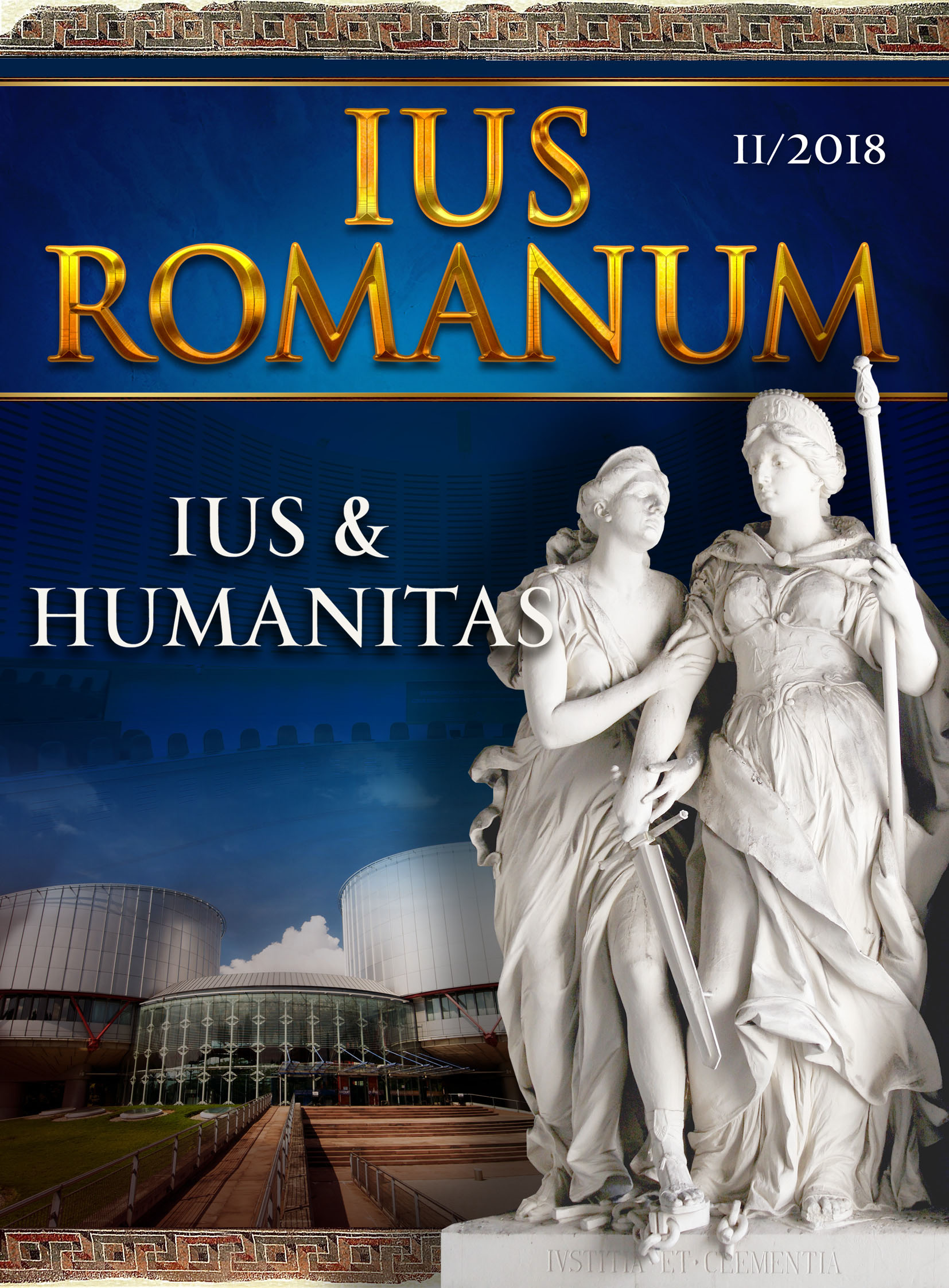
The article examines the relation between homo (the human being) and person in general sense, which is the basis of the modern doctrine on the legal capacity of individuals (physical persons) but which has different interpretations in Roman law and in the opinions of Roman jurists than in the modern law. Man is at the center of Roman law, defined by the term "persona". This term is an entirely product of Roman jurisprudence, which explicitly states that the whole law is created by man, and that he is its cause and purpose. Moreover, the man takes into account his inalienable and indispensable prerogatives in the organization of Civitas. But he has to keep them for himself as he can realize his legal significance which can by no means be absorbed and depend on recognition by a separate social organization (as is the state for example). Through a complex development, to the “persona” is attributed a meaning not only related to the historical plan but also to the recognition of more or less certain or supposed values. This leads to the detachment of the notion of a subject of the law by the man himself and is the cause of many mistakes and contradictions. The distinction between homo and persona reaches its culmination in creating a concept of a subject of law – a physical person or a legal personality. The product of this process is the contemporary concepts of legal personality, respectively specified in the notions of legal entity, legal capacity, legal capacity to act. Faced with this legal reality and artificially created concepts, it is worth reverting to the concept of persona in Roman law, which seems beneficial and may be the starting point for the law of tomorrow and future generations.
More...
A society in decline, an emperor who has the ambition to maintain the Empire on the top of the civilized world and a legal system that seems to lose its unity soon. These are, in an over – synthetized presentation, the conditions where the masterpiece arises. The information we have regarding this work are impressive, although not enough to scatter all the fog that surrounds it: 2 000 books (with a total of 3 billion lines) studied by the compilers – that is twice the volume of the Digest after it has been edited, 15 famous Law professors (under the guidance of Tribonian, “quaestor sacri palati” ) that excerpted the original works, a large amount of practical cases, mirroring the avatars of the Roman world – and all these in only three years. The complexity of the work, as well as the obscurity that surrounds some aspects of the process of its creation have given birth to various controversies between scholars. Consequently, should we be interested in the study of the Digest, we cannot ignore controversial issues as the theories regarding the existence of the so – called Predigests, and the different reasons that lay at their foundation. Moreover, the practical cases that the jurists give as examples to justify their sentences (and the sentences in themselves) are a source for the principles used nowadays in the legal system. Furthermore, the two ways in which the original excerpts of the classical authors were modified by the compilers – the interpolations and the glosses – also present a particular interest in the global analysis of the text. All things considered, it can be stated that the Digest represent one of Justinian’s key achievements, one of the works that crucially influenced the evolution of the humanity. But beyond their practical utility, they remain the symbol of the collective soul of a people that concurred not only land, but principles, not only by sword, but by the depth of spirit and by the greatness of culture.
More...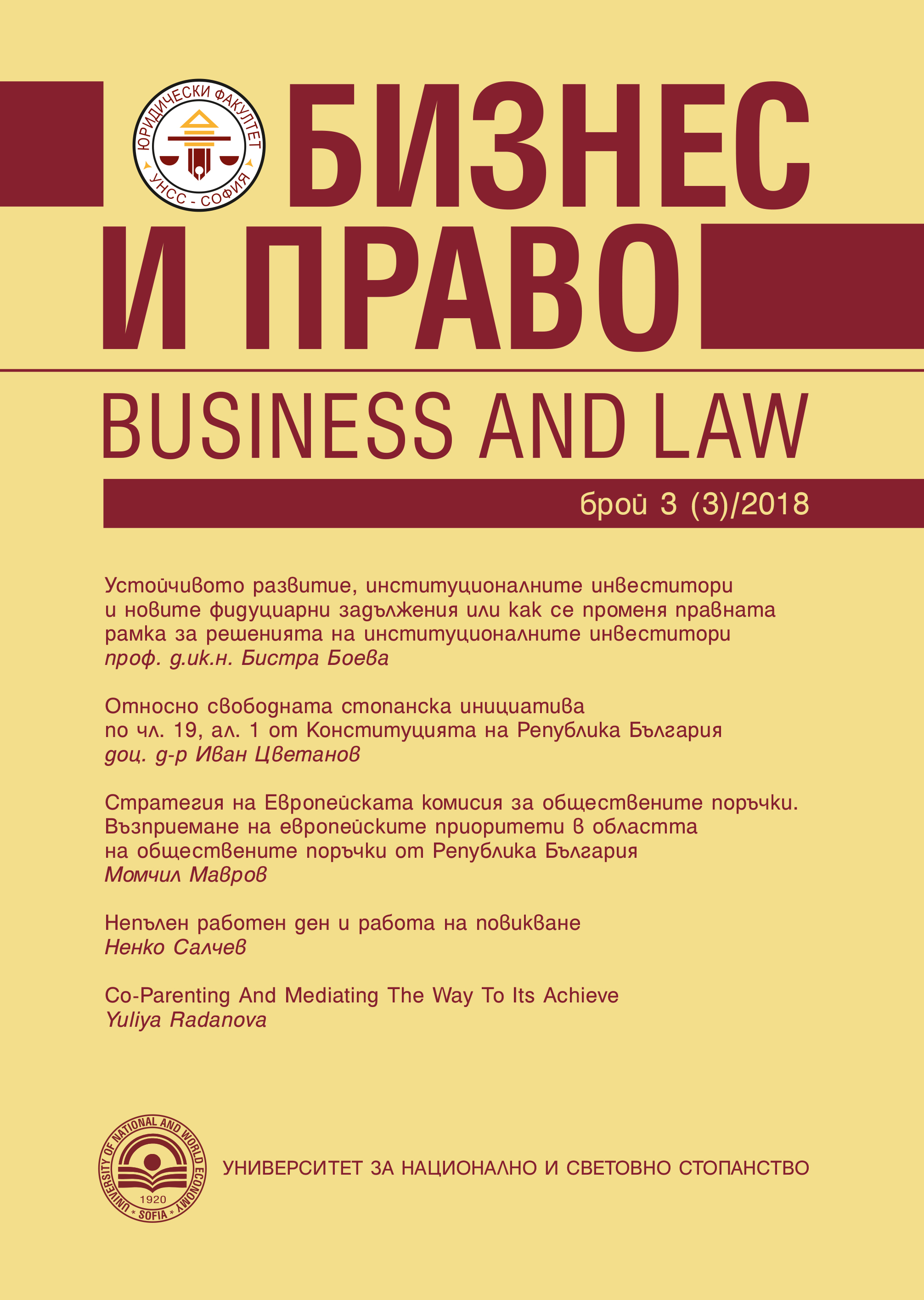
Within the European Union, a very large percentage of public investment is spent through public procurement. This trend has a significant impact on the financial costs of the Union, which is why a number of measures have been taken to create an adequate and flexible legal framework to ensure the delivery of better and more efficient public procurement. Some of these measures are aimed at adopting appropriate acts in the field, such as: Directive 2007/66 / EC of the European Parliament and of the Council, Directives 89/665 / EEC and 92/13 / EEC, the Single Market Strategy (COM (2015)) 550), as well as the European Commission‘s 2017 Public Procurement Strategy. The latter document is important for improving European practices in the field, as it defines priorities in Community policy with regard to public procurement. The Bulgarian legislator should be well acquainted with the European legal framework for public procurement with a view to its proper application in national law.
More...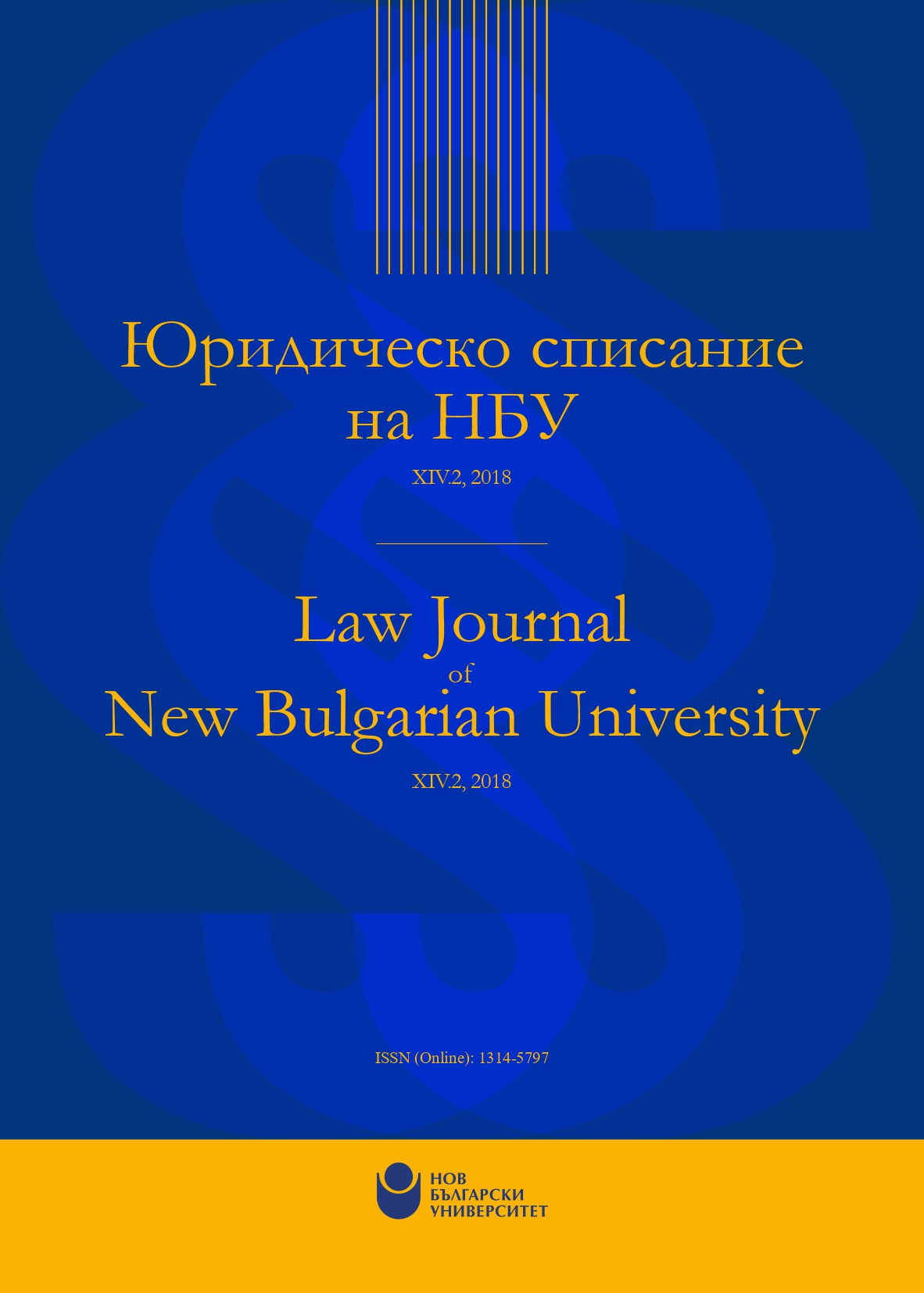
The focus of Directive 2013/11/EU of 21 May 2013 on alternative dispute resolution of consumer disputes is set on the mediation in disputes, arising from sales and service contracts, in which one of the parties is consumer, but а lot of disputes remain outside the field of the directive, and are ready to be resolved by alternative methods. In theory mediation is not allowed in tax–, administrative–, family–, and labour – and social disputes. This article brings up the question whether and to what extent mediation could contribute to the creation of best practices for corporate governance of the public limited liability companies and whether it can be used to resolve disputes in company law. Mediation is examined as a means to optimize the negotiations between two parties and as an alternative to the existing tools for resolving conflicts. It can be useful in resolving conflicts, which arise in the relationships between persons who take part in the management of a company and which are the result of the tension between different groups of interests, in herent to the character of the business activity. The results of mediation go beyond the boundaries of the decision in the given case. Whereas the decision must be good for both sides, the resolution of the specific conflict improves the relations between the persons involved. This also has a positive influence on resolving the forthcoming conflicts and enhances corporate governance practices. That’s why in this paper there is an attempt to reveal the application of mediation in resolving disputes related to challenging the decisions of the general meeting of shareholders and disputes concerning the right to information. Both types of disputes refer to the control over the legality of the decisions of general meetings of shareholders. Mediation cannot be bypassed through judicial claims as the parties are always invited by the court to refer to conciliation and to reach an amicable solution.
More...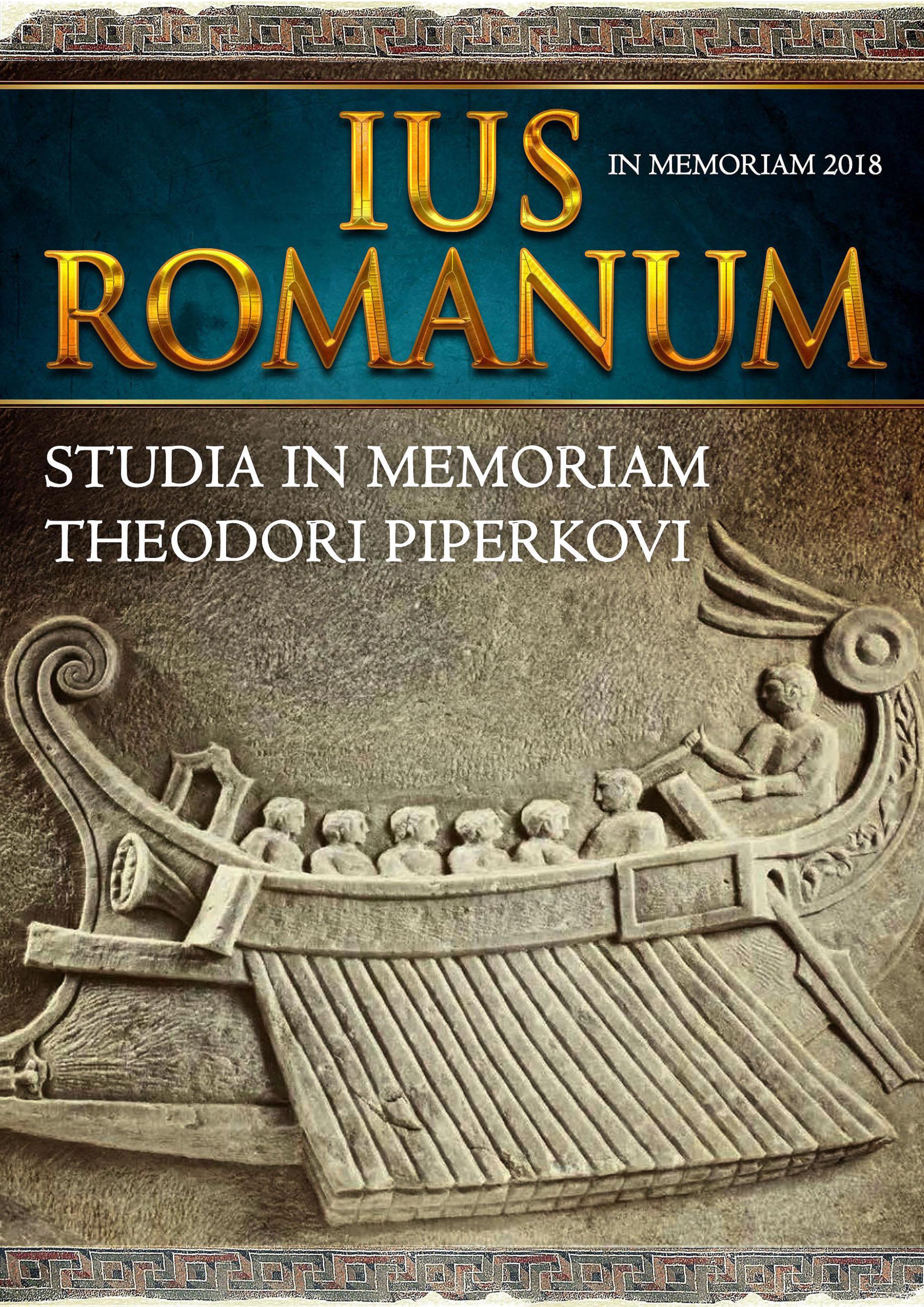
The article is dedicated to the analysis of the information we receive from the speeches of Marcus Tulius Cicero against the former governor of the Roman province of Sicily Gaius Verres. Subject of the study are the Roman provincial government, the ways of collecting taxes in Sicily, the subjects involved in the collection of taxes and public revenues in the Roman provinces and their internal organization. In the article are commented and translated many passages from the Verines, which confirm that the companies of the publicans (societates publicanorum), charged by the Roman state with public functions to collect taxes and public revenues in the roman provinces at the end of the Roman Republic, at this period have a particular internal organization very similar to that of the modern legal entities of corporate type.
More...
In the present work there is compared the imperial constitutions of Diocletian and Constantine I, both in terms of their consistency with the opinions of the classical Roman lawyers and at the level of the legislative technique of their imperial chancelleries, and an explanation of the reasons for the decline of the legislative technique during the reign of Constantine I.
More...
In the article are researched the roots of the right of inheritance, as a right to accept or to renounce the inheritance, in the Roman private law. An overview over the acquirement of the inheritance in the different periods of the development of the Roman law is made. The author noticed the status of the different groups of heirs in every one of the periods. A conclusion is made that one part of the heirs received a right, which is the same like the right of in-heritance in the contemporary Succession law.
More...
The issue of a future amendment of Persons and Family act has not been resolved from 2014 until nowadays. In the beginning of the motives of the project for Persons and measures of support act is indicated that changes in the institute of legal capacity are necessary. This institute is of fundamental importance to the legal system and its modification must be made taking into account a number of peculiarities. A starting point in the debate about future changes may be Roman private law. The complex structure of this institute in Ancient Rome can be a major source of ideas for the reform of the modern institute. For this reason the report aims at analyzing the possibilities for changing the age at which maturity occurs in the light of Roman private law.
More...
The article deals briefly with the historical development of the innominate contracts, from mere agreements not fitting into any of the classical categories of the Roman contracts – the formal, real and consensual contracts to a bunch of diverse pacts which were actionable and had a binding character for the parties who concluded them. After the terminological clarifications introduced by the glossators and under the influence of the cannon lawyers, the commercial practices and the school of the natural lawyers there is no further doubt that innominate contracts have the same binding effect between the parties as all typical contracts, e.g. the sale, the lease and the mandate. The principle “pacta sunt servanda” becomes the major concept behind the conclusion of a contract in the European codifications of the XIX century. The next chapter of the article makes an overview of the regime of the innominate contracts in Bulgarian law after the Bulgarian Deliberation until present by rendering the Bulgarian readers a possible answer how to find the rules applicable to the innominate contracts.
More...
The Lisbon Treaty mitigates the eligibility of claims brought by natural and legal persons on the legality of acts of the Union institutions. This is that the non-privileged claimants (privileged Member State, European Parliament, Council and European Commission - they are not subject to these eligibility conditions) may seek judicial protection or request judicial review in three cases.
More...
In this paper I have touched the principle of protection of foreign investment in EU countries and countries that are not its members. I took a look at their policy in protecting investors. I compared the working system of foreign investment in the countries that are a part of EU and these ones that are not. I have presented two neighboring countries with their similarities and differences in this sphere. They are Bulgaria and Greece. In this paper I have touched the principle of protection of foreign investment in EU countries and countries that are not its members. I took a look at their policy in protecting investors. I compared the working system of foreign investment in the countries that are a part of EU and these ones that are not. I have presented two neighboring countries with their similarities and differences in this sphere. They are Bulgaria and Greece.
More...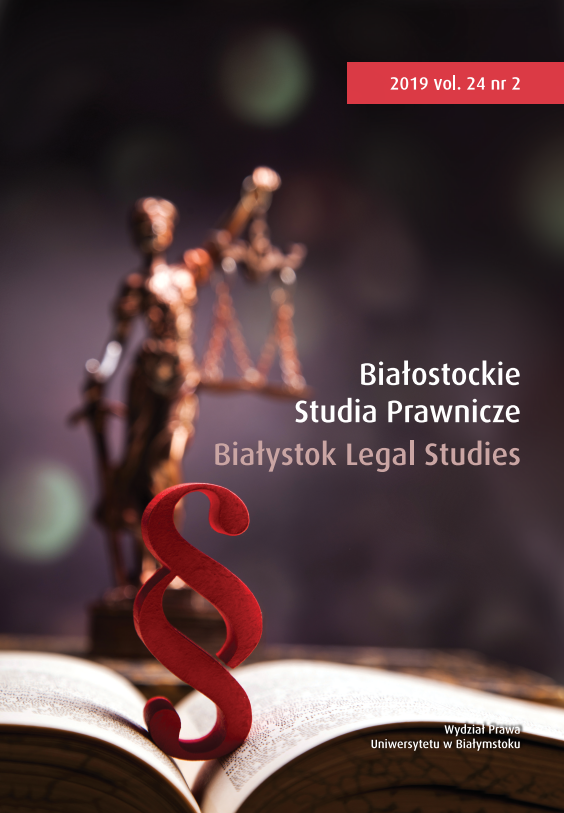

Benefits, according to social insurance funds, have the nature of compensation for lost profits. Hence, the social insurance function has to meet the most important subjective requirements, provide for bare needs, and fulfil minimum standard of living. Contemporary states undertake a series of economic, social, cultural, health, and legal measures to ensure the protection of individuals and family. Various authors define the level of satisfying the needs as the social minimum. Thus, a special law provides the right to material benefit for those in need. Therefore, Kosovo pays special attention to family, mothers, children, martyrs, invalids, veterans and KLA members. The social insurance scheme in the Republic of Kosovo is not defined by a special law, but is defined by a set of laws. Thus, Kosovo has currently legal infrastructure necessary for beneficiaries of the social insurance scheme, though not in the desired form and capacity.
More...
Under the Commercial Register Act, which governs this issue in Art. 7, the entry has a notification effect - it is believed that the recorded circumstance has become known to the third conscientious persons from the moment of entry. The law therefore provides for a rebuttable presumption of knowledge.
More...
The work of Professor Constantin Katzarov in the field of industrial property forms the legal theory, explains the legal nature of the objects of industrial property and provides the basis of the future legal branch - the right to industrial property.
More...
A possible most common biography. This seems to be the exact definition of the life development of Konstantin Ivanov Katsarov. He was born on 31 August 1898 in Sofia in the family of Ivan and Tsanka Katsarov, whose roots are from the beautiful sub-Balkan town of Pirdop. And since, according to the old Bulgarian saying that the pear does not fall far from the tree, after Konstantin graduated from high school, he went to follow on his father's insistence.
More...